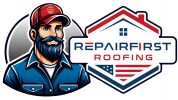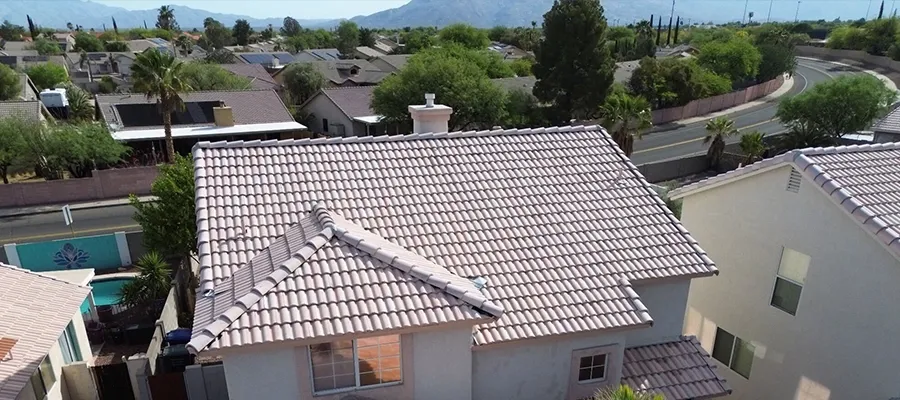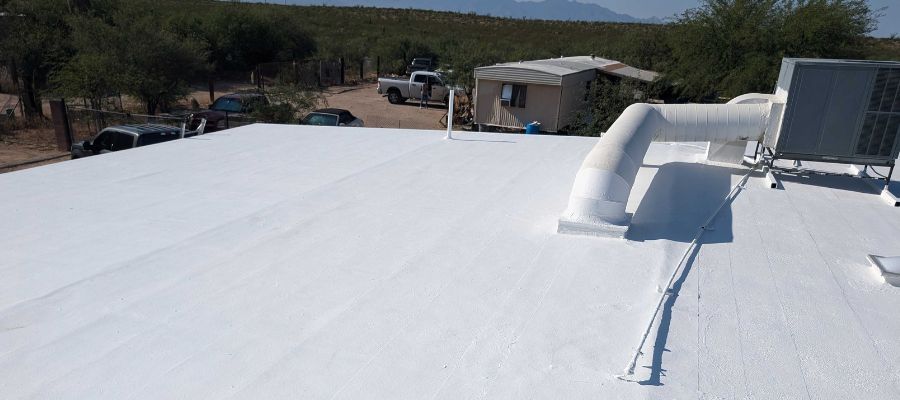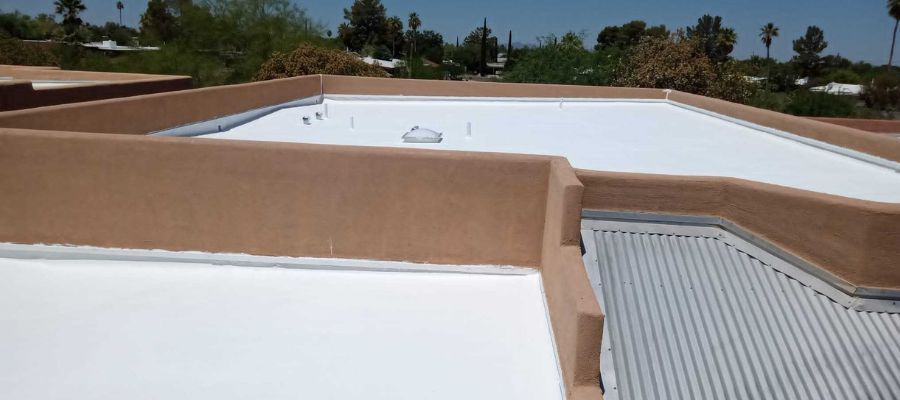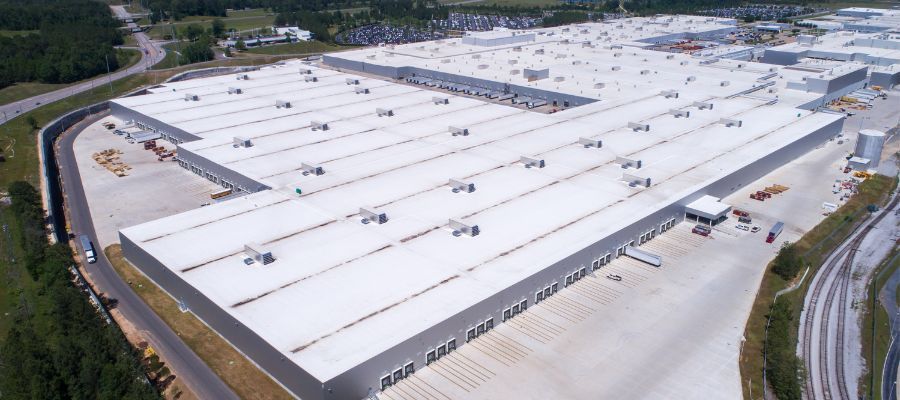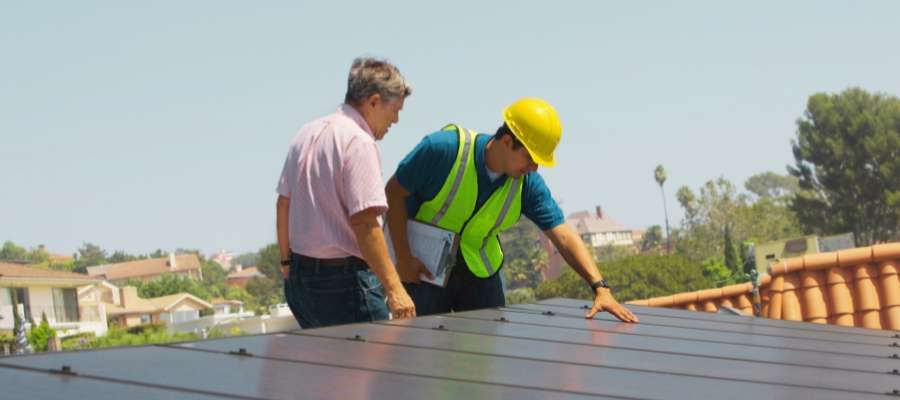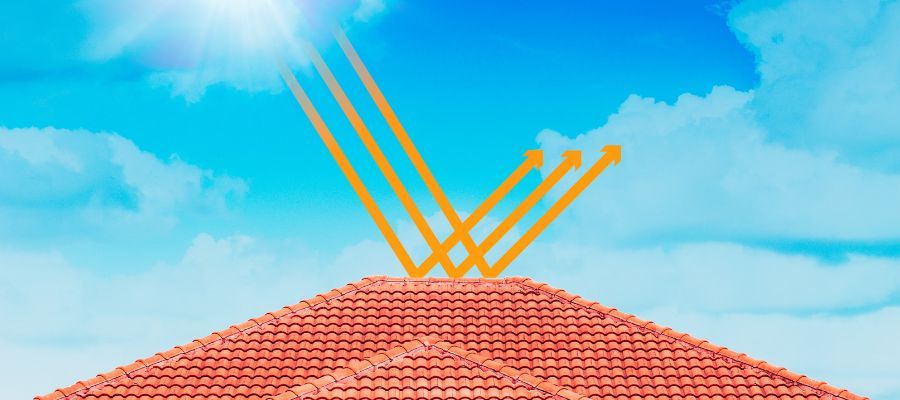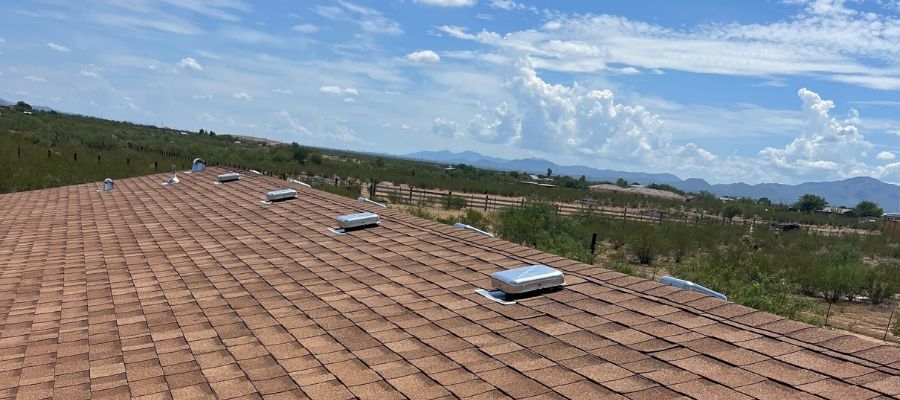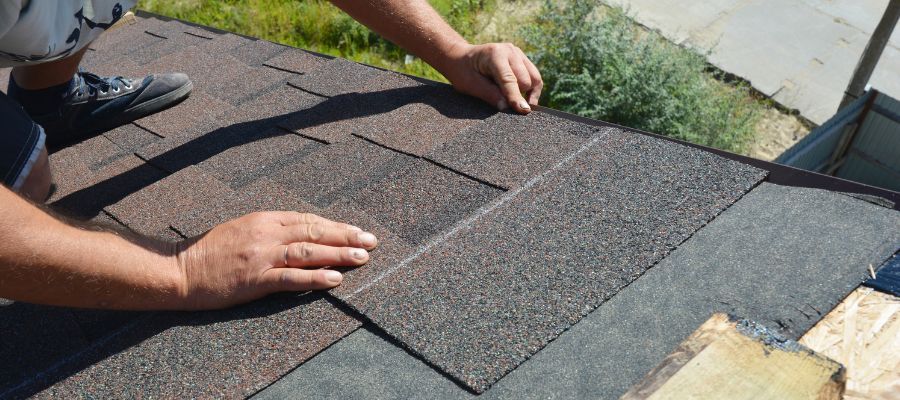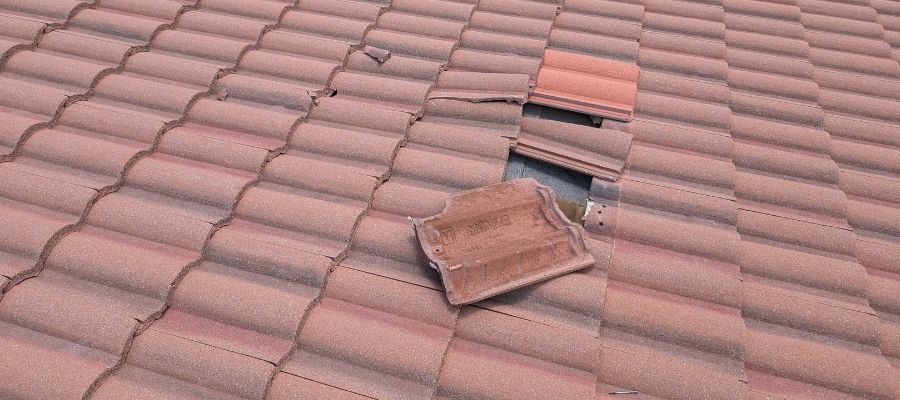The average cost of roof repair in Tucson ranges from $300 to $2,500, depending on the extent of the damage, the type of roofing material, and specific repair requirements such as accessibility and labor.
Roof repairs are an inevitable part of homeownership, especially in Tucson, where roofs endure intense sun, heavy monsoon rains, and occasional strong winds. Understanding the costs involved in roof repair is crucial for homeowners looking to maintain their roofs and prevent minor issues from turning into costly problems. This blog provides a comprehensive guide to the average cost of roof repair in Tucson, highlighting the various factors that influence these costs, such as damage severity, roof material, and additional repair needs.
Whether you’re dealing with a small leak, missing shingles, or more extensive damage, knowing the financial aspects of roof repair will help you plan your budget effectively. We will explore the components contributing to repair costs and share tips on selecting a reputable contractor to ensure quality service. By the end of this article, you’ll have a clear understanding of what to expect in terms of cost, enabling you to make the best choice for your home and budget.
Understanding Roof Repair Costs in Tucson
Understanding the cost of roof repairs in Tucson requires considering several key factors that can significantly impact the final price. One of the primary considerations is the extent of the damage. Minor repairs, such as fixing a small leak or replacing a few shingles, will cost significantly less than more extensive repairs, such as fixing large areas of damage or addressing structural issues.
- Minor Repairs: These include patching small leaks, replacing a few missing or damaged shingles, or repairing flashing around chimneys or vents. Minor repairs typically cost between $300 and $800, depending on the complexity and accessibility of the repair.
- Moderate Repairs: This category includes repairing larger leaks, replacing multiple shingles or tiles, or fixing more extensive flashing issues. Moderate repairs usually range from $800 to $1,500, depending on the roof size and material.
- Major Repairs: Major repairs involve significant work, such as replacing entire sections of the roof, fixing structural damage, or addressing widespread water damage. These repairs can range from $1,500 to $2,500 or more, depending on the severity of the damage and the type of roofing material.
Several other factors can influence roof repair costs, including the type of roofing material, the roof’s age, and the complexity of the roof’s design. Additionally, the accessibility of the damaged area and the local labor rates can also impact the overall cost.
Average Costs for Roof Repair in Tucson
The average cost of roof repair in Tucson typically ranges from $300 to $2,500, with prices varying based on several key factors such as the extent of the damage, roof material, and the complexity of the repair. Here’s a breakdown of average costs based on the severity of the repair:
- Minor Repairs: $300 to $800
- Moderate Repairs: $800 to $1,500
- Major Repairs: $1,500 to $2,500+
Labor costs also play a significant role in the overall expense of roof repair. Professional repair ensures that the problem is accurately diagnosed and fixed, preventing further damage and more costly repairs in the future. On average, labor can account for 50% to 70% of the total repair cost. By understanding these cost components, homeowners can better plan their budgets and make informed decisions when selecting a roof repair service that meets their needs and fits within their financial budget.
Potential Additional Costs During Roof Repair
When planning for roof repair in Tucson, it’s important to consider potential additional costs that may arise beyond the initial estimate. These additional expenses can significantly impact your overall budget and should be accounted for in advance. While some of these costs are optional, others may be necessary to ensure your roof is fully repaired and protected against future damage.
- Roof Inspection: Before any repairs begin, a professional roof inspection is often necessary to assess the full extent of the damage. The cost of a roof inspection can range from $150 to $400, depending on the thoroughness of the inspection and whether additional assessments, such as infrared or thermal imaging, are required.
- Roof Decking Repair: If the damage extends beyond the shingles or tiles and affects the roof decking, additional repairs may be necessary. The cost of repairing or replacing roof decking can add several hundred dollars to the overall repair cost.
- Underlayment Replacement: In some cases, the underlayment (the protective layer beneath the shingles or tiles) may need to be replaced, especially if it has been compromised by water damage. The cost of replacing the underlayment depends on the size of the affected area and the type of material used.
- Permits and Inspections: Depending on local regulations, you may need permits and inspections for significant roof repairs, which can incur additional fees.
Being aware of these potential additional costs can help you plan and budget more effectively for your roof repair, ensuring that your roof is fully restored and protected. By addressing these potential needs upfront, you can avoid unexpected expenses and make informed decisions that enhance your home’s safety and value.
Tips for Choosing the Right Roof Repair Service in Tucson
Choosing the right roof repair service in Tucson is crucial to ensuring a seamless and effective repair process. Start by researching local roofing contractors and compiling a list of potential candidates. Look for companies with a solid reputation and positive customer reviews, as these can provide valuable insight into the quality of their work and customer service.
It’s also essential to verify that the contractors are licensed and insured, as this protects you and your property in the event of any issues during the repair. A reputable contractor will offer a detailed, written estimate that includes all potential costs, ensuring transparency and helping you avoid unexpected expenses.
When evaluating roof repair services, consider their experience and expertise with the specific type of repair you need. Different types of roofs, such as asphalt shingles, tile, or metal, may require specialized knowledge or skills. It’s beneficial to ask contractors about their experience with similar repairs and request references from previous clients. Additionally, inquire about warranties and after-sales support to ensure you receive the best long-term service and maintenance.
A trustworthy contractor will provide clear communication, answer your questions, and guide you through the entire repair process, making it a smooth and stress-free experience. By taking these steps, you can select a roof repair service that meets your needs and budget while ensuring your roof is fully restored and protected.
Professional Roof Repairs Near You
In conclusion, investing in timely roof repairs is essential for maintaining the longevity and safety of your roof, especially in Tucson’s extreme climate. Understanding the various factors that influence the cost of roof repairs, from the extent of the damage and roof material to additional expenses like roof decking repair and underlayment replacement, will empower you to make informed decisions that align with your budget and roofing needs.
By carefully selecting a reputable roof repair service and considering potential extra costs, you can ensure a smooth repair process and long-term satisfaction with your roof’s condition. Armed with the knowledge provided in this guide, you are now better prepared to navigate the complexities of roof repairs and enjoy a safe, well-maintained home for years to come.
When it comes to roof repair services in Tucson, Repair First Roofing stands out as a trusted leader in the industry. Our team of certified and highly skilled technicians is dedicated to providing top-notch service, ensuring each repair is performed with precision and care. Repair First Roofing offers a wide range of repair solutions tailored to fit the unique needs of your roof, whether you’re dealing with minor leaks, missing shingles, or more extensive damage.
With a commitment to customer satisfaction, we provide detailed consultations, transparent pricing, and ongoing support, making us the go-to choice for reliable and efficient roof repairs in the Tucson area. Choose Repair First Roofing for your roof repairs.
Frequently Asked Questions About Roof Repairs
How long does the roof repair process typically take?
The roof repair process usually takes between one to three days, depending on the extent of the damage and the complexity of the repair. The initial consultation and assessment might take a few hours, during which the contractor evaluates your roof’s condition and discusses your repair options. Once the repair begins, the contractor will fix the damage, replace any necessary materials, and ensure the roof is fully restored.
What should I expect during a roof repair?
During a roof repair, the contractor will address the specific issues identified during the inspection, such as fixing leaks, replacing damaged shingles or tiles, or repairing flashing. The process may involve removing damaged sections of the roof, making the necessary repairs, and then restoring the roof to its original condition. The contractor will also clean up any debris and ensure the area is safe and secure.
What factors affect the cost of roof repairs in Tucson?
Several factors can influence the cost of roof repairs in Tucson, including the extent of the damage, the type of roofing material, and the complexity of the repair. Additional considerations include the accessibility of the damaged area, the need for any additional repairs (such as roof decking or underlayment replacement), and local labor rates.
How often should I have my roof inspected for potential repairs?
It’s recommended to have your roof inspected at least once a year, especially before and after the monsoon season in Tucson. Regular inspections can help identify and address issues early, preventing costly repairs or damage. Additionally, if your area experiences severe weather, it’s a good idea to schedule an inspection after significant storms to ensure your roof remains in good condition.
Can roof repairs extend the life of my roof?
Yes, timely roof repairs can significantly extend the life of your roof by addressing issues before they become more serious. Regular maintenance and prompt repairs help prevent water damage, structural issues, and other problems that can shorten your roof’s lifespan.
Proper planning and selecting the right contractor can make your roof repair a smooth and successful experience, providing your home with enhanced protection and peace of mind in Tucson’s challenging climate.
